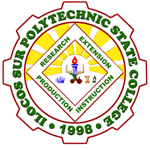This course provides an overview of the computing profession, including research and applications in different fields: an appreciation of computing in various fields like medicine, environment, gaming, etc.; an appreciation of history computer hardware and software, computer network, computer security and the internet.
This course is the first phase of discrete structures which aims to provide basic understanding of the discipline that is considered as the backbone of computer science. In particular, this course is meant to introduce logic, sets, relations, function, and proof techniques with an emphasis in computer science.
The course aims to equip students with knowledge and skill in human-computer interaction, which is applicable to several program outcomes, particularly those related to computing problems, design, and evaluation, as well as communication and teamwork. Through this course, students will learn how to apply fundamental principles of human-computer interaction to analyze, design, understand, appreciate an eventually live by the basic concepts of the student’s transformation and enrichment for truth (STET) with the end in view of empowering them in becoming a potent resource for community development.
Purposive communication a three-unit course that develops student communicative competence and their cultural and intercultural awareness through multimodal task that provide them opportunities for communicating effectively and appropriately to a multicultural audience in a local or global context. It equips students with tool for critical evaluations of a variety of texts and focuses on the power of language and the impact of images to emphasize the importance of conveying messages responsibly. The knowledge skills, and insights that students gain from this course may be used in their academic endeavors, their chosen disciplines, and their future careers as they compose and produce relevant oral, written audio-visual and/or web-based output for various purposes.
This course builds on the foundations of motor skills achieved through core training. It will experience in a variety of exercise programs for the purpose of maintaining and enhancing cardiorespiratory and musculoskeletal fitness (i.e., core stability, muscle strength, endurance and power). It includes speed and agility training with a focus on body coordination and balance. In conjunction with fitness and wellness concepts, exercise and healthy eating principles, learners will be able to enhance their fitness though goal setting and applications of the exercise principles (i.e., frequency, intensity, time, progression, and volume); adapt their movement competencies to independent physical activity (PA) pursuits and periodically evaluate their PA and eating patterns to monitor their progress and achievement of personal fitness and dietary goals.
This course introduces a range of theoretical approaches to study popular culture, exploring the intersection between everyday life, mass media, and broader historical contexts. The key theoretical readings and approaches to studying culture will be considered, including the introduction, history, evolution, entertainment, television, music, literature, values traditions and the Filipino cuisine. Using these theoretical tools, a range of Philippine popular culture and sites of cultural expression will be examined, from according to its history, evolution, and its development, to understand popular culture of ongoing social struggle.
The Civic Welfare Training Services (CWTS) as a component of the National Service Training Program (NSTP) is a course for first year students both male and female designed to help them understand, appreciate an eventually live by the basic concepts of the student’s transformation and enrichment for truth (STET) with the end in view of empowering them in becoming a potent resource for community development.
